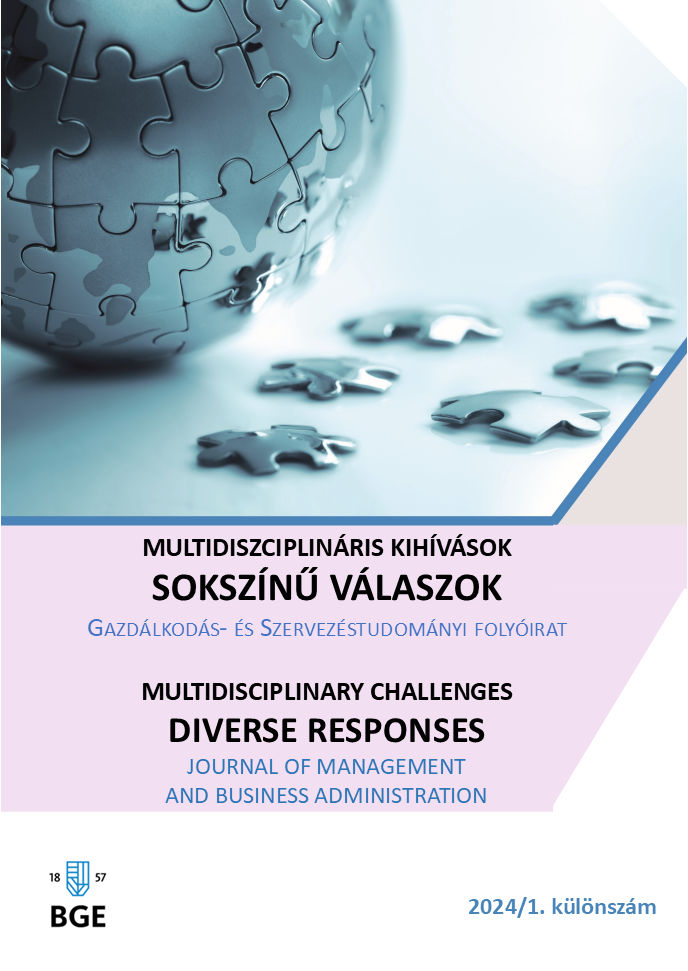Sustainability in the Automotive Industry
The Situation of Electric Cars in Hungary from The User's Perspective
Abstract
In our study, we want to provide an overview of the use of electric cars in Hungary. We present a brief history of the development of traditional and electric cars. We shed light on the use of electric cars in connection with sustainability from a domestic and international perspective. Regulations, trends and consumer expectations all show that sustainability is an important topic, and the automotive industry is also at the center of it.
We will examine the quality of the infrastructure developed around the electric car and the establishment of solar parks in Hungary. Also, the installation of electric car chargers, including fast chargers, which factors affect the user side in the field of electric cars in our country.
We investigate whether the electric car is more sustainable than the conventional car. In terms of costs, is it economically more worthwhile to buy an electric car compared to a conventional car. In relation to charging, we examined three variations, here the conclusion is that the cost of charging is the most favorable for electric car owners who have a solar panel in their home.
By enabling electric vehicles to interact with the grid and potentially serve as energy storage devices, EVs can facilitate the integration of renewable energy sources, further bolstering their sustainability.
We would like to draw attention to the importance of protecting the environment, our living space, and practicing environmentally conscious behavior when using a car.
We used a mixed methodology: secondary sources and in-depth expert interviews as primary research.
References
1995. évi LIII. törvény a környezet védelmének általános szabályairól https://net.jogtar.hu/jogszabaly?docid=99500053.tv
Csath, M. (2020) – A fenntarthatóság mint emberi és társadalmi fejlődés-Acta Humana. https://doi.org/10.32566/ah.2020.1.2
Gáti, J. (2008): Galamb József és a Ford T-modell, in Fiatal Műszakiak Tudományos Ülésszaka. https://doi.org/10.36243/fmtu-2008.28
Harangozó, G.- Csutora, M.–Tátrai, T.–Vörösmarty, Gy.. (2019). A zöld ellátásilánc-menedzsment fejlődése – múlt, jelen és jövő = Development of the Green Supply Chain Management – Past, Present, Future. Vezetéstudomány 50(12): 122–135. https://doi.org/10.14267/veztud.2019.12.11
Horváth, B. (2019): A fenntarthatatlanság és a betegség kultúrtörténete. Typotex Kiadó, Budapest
IUCN, UNEP, WWF: Caring for the Earth (1991): A strategy for sustainable living. Gland, Svájc
Karwatka, D. (2015). Technology’s past, Tech Directions, Moving Civilization: The Growth of Transportation Vol 3. Publisher, Prakken Publications
Király É., Hegedűs F., Domboróczky Z (2023). Globális ellátási láncok aktuális kihívásai Multidiszciplináris kihívások és sokszínű válaszok 2023/1. 56-92 DOI: https://doi.org/10.33565/MKSV.2023.01.03
Kovács Zoltán et al., (2017)Az urbanizáció környezeti hatásai – Az ingázás ökológiai lábnyomának változása a budapesti várostérségben Területi Statisztika, 2017, 57(5): 469–494; DOI: https://doi.org/10.15196/ts570501
Krajewski, L. J., Malhotra, M. K., Ritzman, L.P. (2016) Operations Management. Processes and Supply Chains. 11 edition, Pearson
R. Brown, L. (1981): Building a sustainable society. A Worldwatch Institute Book, W.W. Norton, New York DOI: https://doi.org/10.1017/s0014479700010589
Meadows, D. H., Meadows, D. L., Randers, J., Behrens, W. W (1972) The limits to growth: A report for the Club of Rome’s project on the predicament of mankind. New American Library, New York https://doi.org/10.1349/ddlp.1
Orliczki Petra, Kovács Tamás (2023). Tanulmány a modern turizmusról, avagy a közösségi média utazásainkra gyakorolt hatása Multidiszciplináris kihívások, sokszínű válaszok,2, 81-103. https://doi.org/10.33565/MKSV.2023.KSZ.02.04
Shediac-Rizkallah, M. C. – Bone, L. R. (1998): Planning for the Sustainability of Community-Based Health Programs: Conceptual Frameworks and Future Directions for Research, Practice and Policy. Health Education Research, Vol. 13, No. 1, pp. 87–108. https://doi.org/10.1093/her/13.1.87
Smuk, Péter szerk. (2020) – A Fenntartható Fejlődési Célok (SDG) érvényülése Magyarországon, Ludovika Egyetemi kiadó, Budapest
Szlávik, János (2013): Fenntartható gazdálkodás, Közgazdasági Szemle, LXI. évf., 1476–1480. o. https://doi.org/10.17649/tet.28.3.2608
Szűcs Boglárka – Pónusz Mónika (2020). A fenntarthatóság fogalmának története, különös tekintettel a környezeti nevelésre és az innovációra Polgári Szemle. 16. évf. 4–6. szám, 2020, 393–403., https://doi.org/10.24307/psz.2020.1031
Zilinszky, János és Balogh, Dorka (2016): Világunk átalakítása. Pázmány Press. Angol–magyar, kétnyelvű kiadás, Budapest
https://e-cars.hu – Letöltve: 2023. 07.25.
https://ksh.hu/s/kiadvanyok/fenntarthato-fejlodes-indikatorai-2022/4-13-sdg-9 - Letöltve: 2023.09.10.
https://mavir.hu/documents/10258/240611/PV+STATISZTIKA_HU_20220401_ig.pdf/
https://ourworldindata.org/fossil-fuels
https://totalcar.hu/24ora/?cimke=elektromos+autó – Letöltve: 2023.08.03.
https://villanyautosok.hu/2018/02/05/elen-nissan-regioban/
https://www.youtube.com/watch?v=StnSkKRY2Gg-erőművek típusai
United Nations (2023): The Sustainable Development Goals Report Special Edition 2023 - https://sdgs.un.org/goals - Letöltve: 2023.09.12.


























